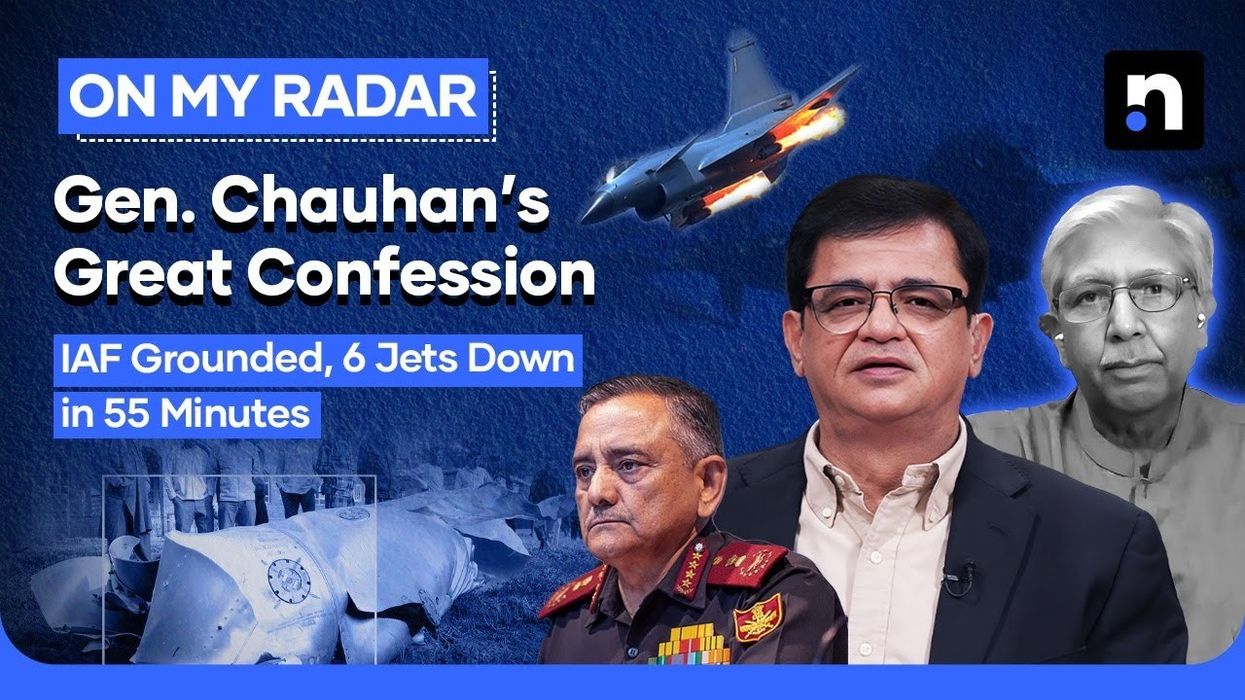India acknowledges air war losses to Pakistan, sparking political firestorm
Kamran Khan highlights Indian general’s admission of grounding jets for two days in conflict
News Desk
The News Desk provides timely and factual coverage of national and international events, with an emphasis on accuracy and clarity.
In a dramatic reversal, top Indian defense officials have admitted to major setbacks in a recent aerial conflict with Pakistan, acknowledging that “technical mistakes” grounded the Indian Air Force for two days during a four-day standoff.
According to Kamran Khan, the admission has triggered political uproar and fueled calls for accountability from opposition parties and military analysts.
Gen. Anil Chauhan, India’s Chief of Defense Staff, told Bloomberg during the Shangri-La Dialogue in Singapore that Indian fighter jets were temporarily grounded due to operational errors in the heat of combat. While he did not directly confirm the number of aircraft lost, Chauhan emphasized the importance of examining what went wrong rather than simply counting fighter jets.
Pakistan had claimed it downed six Indian fighter aircraft, including Rafale jets, during the conflict. The global reaction to that claim was mixed, but Chauhan’s acknowledgment appears to lend it unprecedented credibility.
In a separate interview with Reuters, Gen. Sahir Shamshad Mirza, Pakistan’s Chairman Joint Chiefs of Staff Committee, said that while the situation has calmed, “strategic miscalculation” remains a serious risk.
“If India escalates tensions again, destruction may occur even before the international community can intervene,” Mirza warned.
Indian military analysts and politicians have not held back. Defense analyst Pravin Sawhney demanded Gen. Chauhan’s resignation in a post on X (formerly Twitter), pointing to the fact that the Indian Air Force (IAF) did not operate for half of the four-day conflict.
“It needs some guts to say that India did well in Operation Sindoor,” Sawhney wrote.
IAF Air Chief Marshal Amar Preet Singh placed blame squarely on the Modi administration. Speaking at a defense conference, Singh criticized longstanding delays in defense procurement, poor governance, and a lack of readiness.
“In India, contracts, procurement, and deliveries have never been timely,” he said.
The Indian press has also been caught in the controversy. Journalist Vijaita Singh of The Hindu faced backlash for initially reporting the aircraft losses. Her story, which included images of jet debris, was retracted after pressure from pro-government media. Now, Indian journalist Ravish Kumar has questioned whether The Hindu will be forced to apologize again—this time for reporting the truth.
Adding to the Modi government’s woes, BJP veteran and former law minister Subramanian Swamy conceded that Pakistan’s jets outperformed India’s during the clash.
“Pakistani jets were superior to Indian ones,” Swamy admitted.
Following these revelations, India’s opposition parties have demanded a special session of parliament. Leaders from Congress and other factions accused the government and pro-Modi media of misleading the public.
Pakistan’s victory, widely celebrated in its domestic media, has sparked renewed confidence in its air force. International observers have also taken note of the country's aerial capabilities.











Comments
See what people are discussing